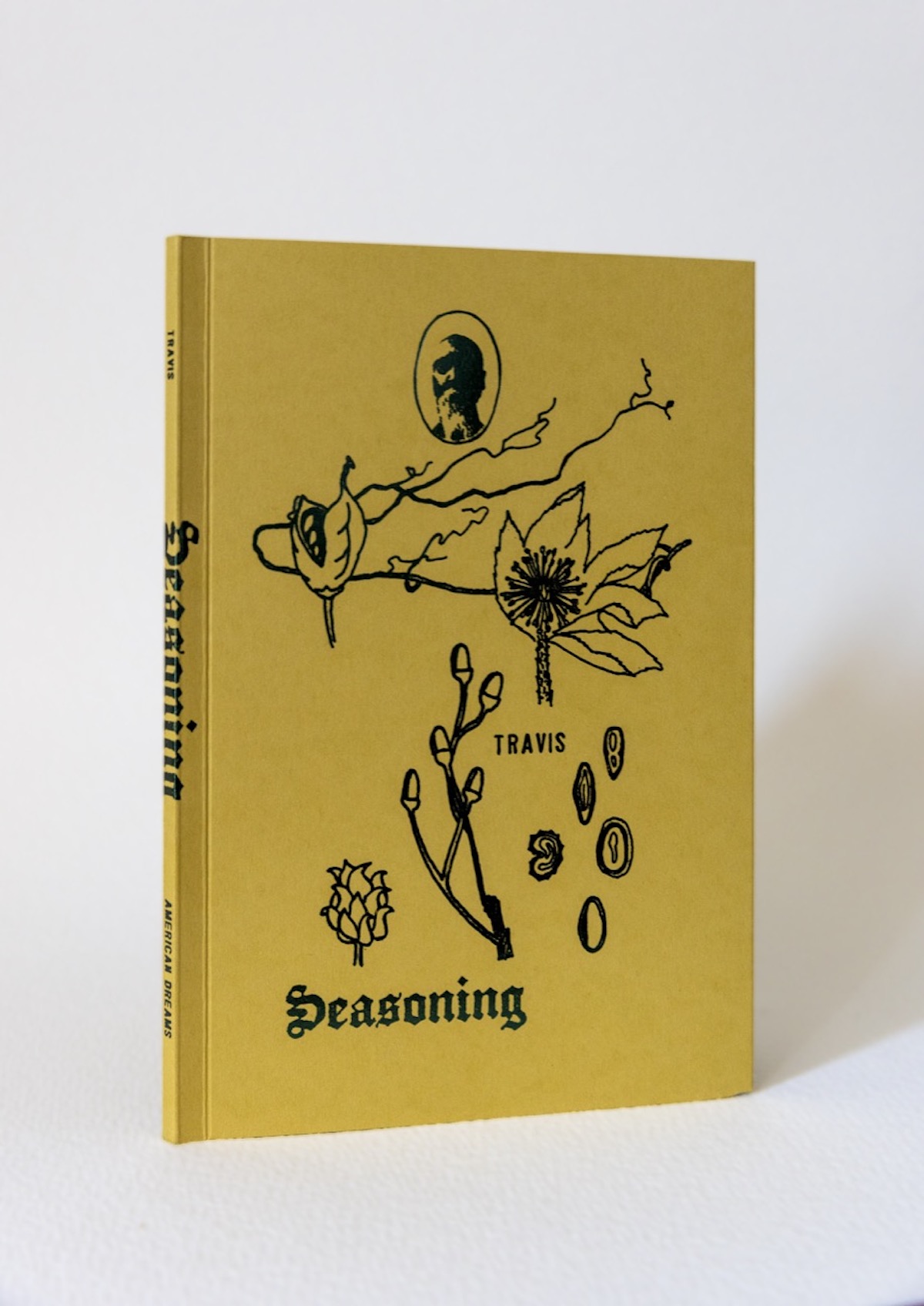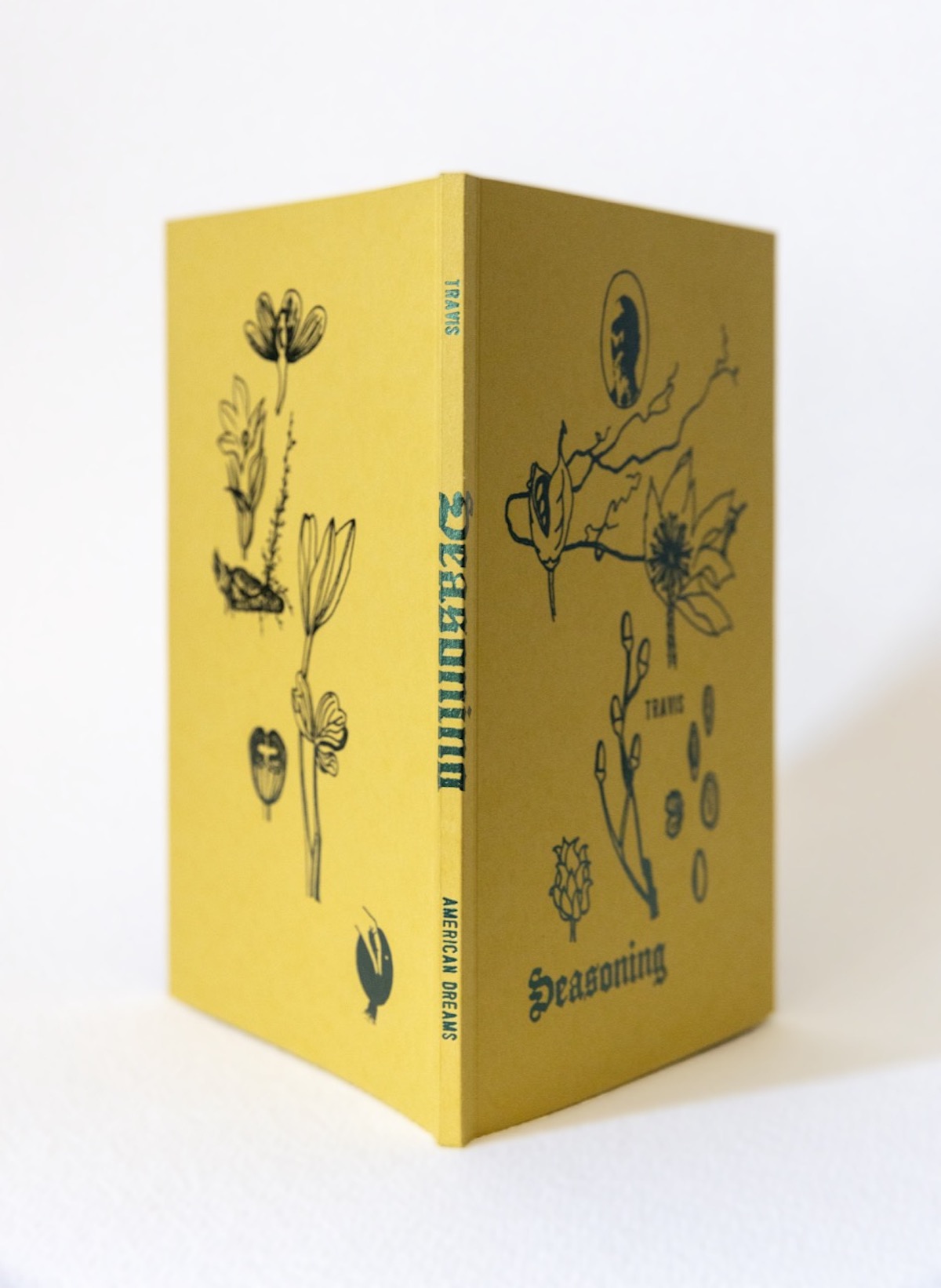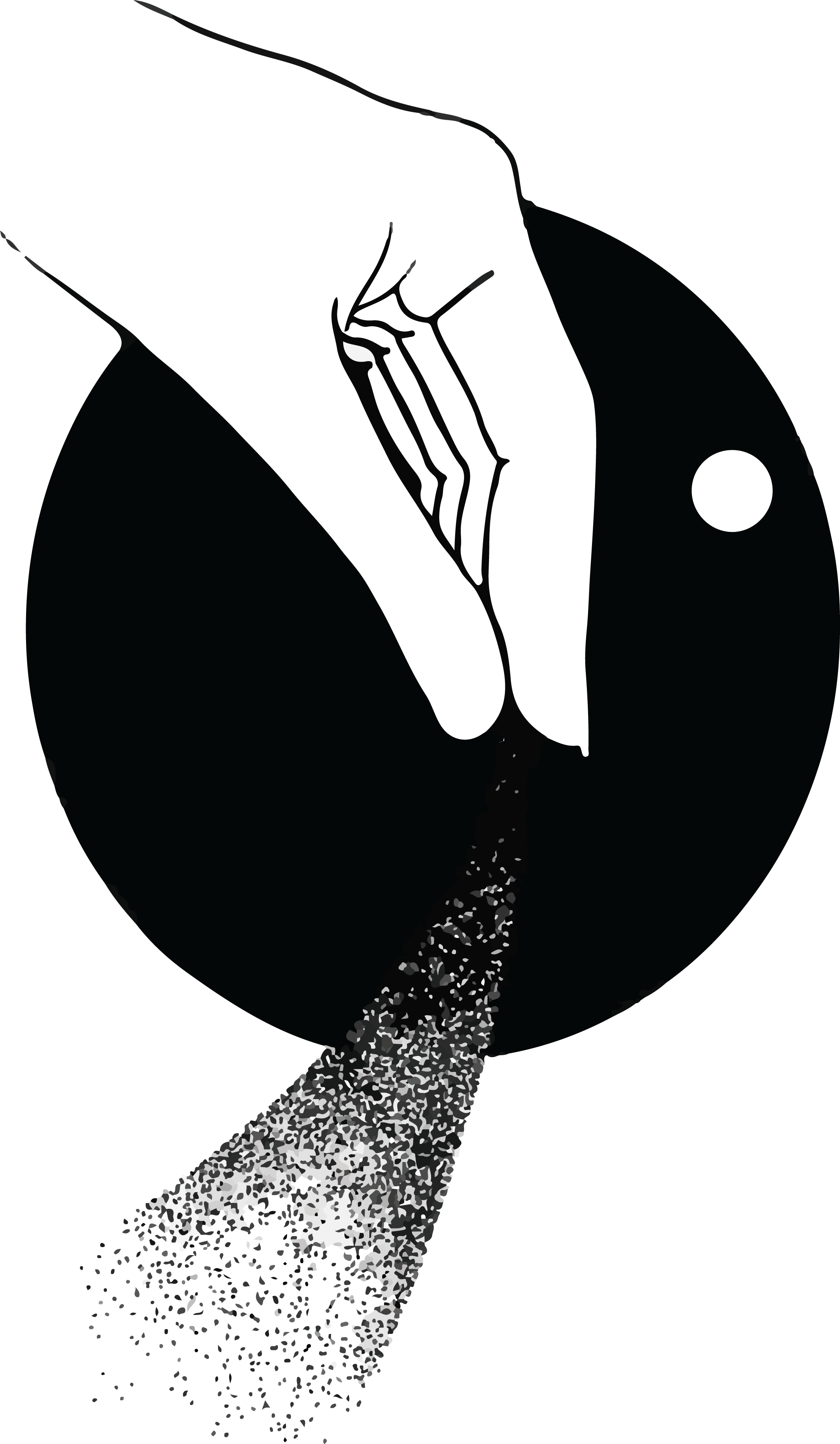



travis Seasoning
travis – the septuagenarian, queer, Black Vietnam vet, who has fronted the gospel industrial band ONO since 1980 – told me his life was fictional in 2018. We were at the Stoney Creek Hotel in Columbia, Missouri, which looks like homemade maple syrup smells. In the queen bed room, travis whipped out his iPad to show P Michael Grego, (cofounder of ONO) and I (lackey in ONO) some new writings. “Autopsyism” and “margination,” elements and cosmologies as ubiquitous in travis’ studies and writing these days as water to the sea: “Economics Of Black Death!” “Redefining Evil In Epidemeologic Waves!” And Black life as fiction – his Black life as fiction. Histories erased. Caricatures lathered on like so much shaving cream. The financial market churning useless totems by harvesting marginalized humanity. Surveillance, interrogation, subjugation, violence. Science fiction is non-fiction is fiction. Where do we go but to the South?
Seasoning examines many concepts mentioned in that pine-lined temporary lodging, and is the first volume in a planned series of travis books. In the Atlantic slave trade, the term “seasoning” was used to denote the period of adjustment enslaved Africans required for the new diets, climates, geographies, and ecologies of the United States. Louisiana and Mississippi were the home of slave seasoning in the United States. New slaves were called “outlandish” or “saltwater” who – if they survived – were “seasoned.” Mortality rates for enslaved peoples were particularly high during this process, a continuation of the inhuman conditions experienced during the voyage on the Middle Passage: disease, minimal nutrition, pests, direct violence all contributed to high death rates during the seasoning period. Seasoning considers the horticulture of travis’ home state, Mississippi, and the insidious, universal repercussions of colonization from the immediate death of indigenous populations to property values of contemporary South Side Chicago. Stony Island Avenue meets the Gold Coast in redlined corporate “cells,” spanning events from ancient, bleak history to the sadistic future. “Not even death is risk free.”
The book is as much a visual art piece as a linguistic one. On one page, travis pairs images of common herbs, roots, weeds from the South with their medical properties, with writing on its facing leaf. Spacing, formatting, and typography appear with jarring precision, mirroring the research and rhetorical processes in the content.
Longtime ONO listeners will be familiar with travis’ musings, meditations, and invitations to continuous education (there’s a reason ONO LPs come with lyric sheets). Like the insert of ONO’s Red Summer, in which travis’ paintings square off against his words, Seasoning works on both meaning and feeling, providing a springboard for further learning and literacy, one sure to pay off with subsequent re-readings.
Like its content, Seasoning’s style explodes time and space, taking on aspects of the theoretical, the poetic, the novelistic – yet none of those descriptors feel quite right. Reading travis’ writing is like looking at or reading a painting, where the microcosm of a phrase is as meaningful as a brushstroke. The book is made to be read from start to finish, but it rewards subconscious follow ups, allowing a reader’s eyes to alight on a phrase here, a word there. Assume connection: what makes it? How do the connections make the whole? There Seasoning blossoms.
-- Jordan Reyes
writing & design by travis
facilitation by Tim Breen & Field of Grass

